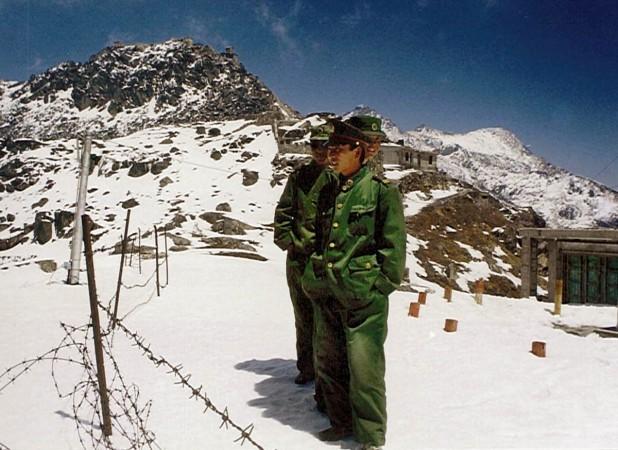While the Chinese media has time and again said that India has been provoking the People's Liberation Army at the Indo-China border in Sikkim and that New Delhi "must be taught a lesson," it looks the state media itself is learning things the hard way. After mocking India in a weird and racist video, the Xinhua news agency has once again released a video explaining the Doklam standoff, but seems to have mellowed since the last outburst.
The new video, in which a newsman can be seen detailing the issue, explains why India is wrong and is ruining its own interests through the standoff. Though in a more sober tone, Xinhua's video once again says that India was the one who entered the Chinese territory and halted road construction in the region.
"On June 18, Indian troops, carrying weapons and driving two bulldozers, crossed the Sikkim sector and entered Chinese territory. It obstructed Chinese roadworks in the region, causing a standoff between the two sides," the video explains.
The newsman then says that the issue in Doklam shows India's lack of trust and even draws reference to the ancient times saying the two countries "are not born rivals." "Contact between the two countries stretches back to ancient times. Which is why India should immediately and unconditionally withdraw all troops from the Chinese territory."
The video then talks about how the two countries must coexist harmoniously and peacefully, which is beneficial to both the parties. "After all, there is more than enough room in Asia for the 'Chinese Dragon' and the 'Indian Elephant' to dance together."
Sober, cooperative solution is in need to tackle China-India border standoff (#DoklamStandoff). Watch our latest #TalkIndia program for more pic.twitter.com/VcnEwv3nDc
— China Xinhua News (@XHNews) August 20, 2017
Though the tone is clearly mellow, the video doesn't explain in any way why Beijing believes that it is right and only blames India.
Meanwhile, Xinhua had earlier mocked India for the standoff and the video garnered massive attention for its racist flavour. The three and half minute video had explained the "seven sins" of India, which includes trespassing, "trampling" international law, violating a bilateral convention, putting the blame on the victim, confusing right and wrong, hijacking a small neighbour and "knowingly" sticking to a mistake.
"When the whole world is trying to wake India up from its impulse, China's realised it's impossible to awaken a guy who's pretending to be asleep," the host in the video says. It then goes on to show the "Indian", who, in a bizarre Indian accent, says: "Nobody's blaming me becasue (sic) I'm asleep."
The Doklam standoff has been going on for over two months now with both India and China refusing to back down. While other countries have been taking a neutral stance in the matter saying the issue should be sorted through diplomatic talks, Japan was the first country to speak in support of India.
The Japanese ambassador in India Kenji Hiramatsu on Thursday had backed India in the Doklam standoff and told the media: "We understand that the standoff in the Doklam area has been ongoing for nearly two months. As it can affect the stability of the entire region, we have been watching the situation very closely.
"We also understand that India has a treaty understanding with Bhutan, that's why Indian troops got involved in the area."

However, Beijing immediately lashed out at Tokyo and said that it must not make "random comments." Hua Chunying, China's foreign ministry spokesperson, said on Friday that "the Japanese ambassador in India might really want to back India, but I want to warn him not to speak carelessly before he is fully aware of the facts," according to the Global Times.
Additionally, Japanese Prime Minister Shinzo Abe is set for a three-day India visit on September 13 and China doesn't seem too comfortable with the idea. Hu Zhiyong, a research fellow at the Institute of International Relations of the Shanghai Academy of Social Sciences, told the Global Times on Friday that this is Tokyo's way of confronting China.
"India and Japan see China as a common opponent ... they have been strengthening cooperation on nuclear issues and national defense as well as forming the 'freedom corridor' to rival China's Belt and Road initiative," Zhiyong said. "Japan's public statement at such a sensitive time is to strengthen India's dependence on Japan and to counteract the pressure from China in the East China Sea."















